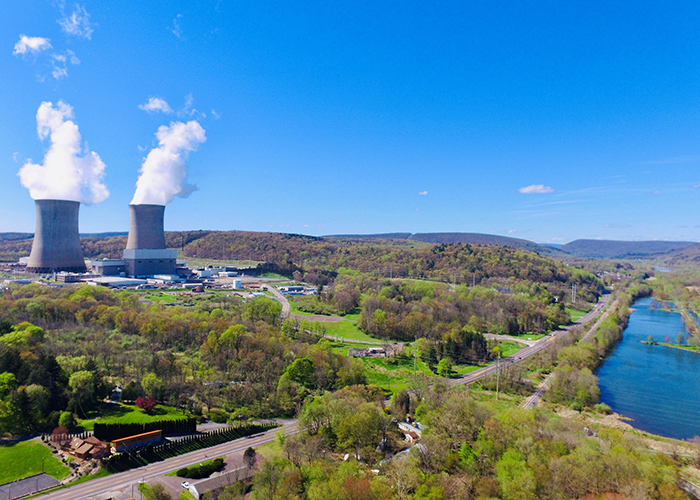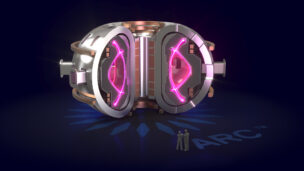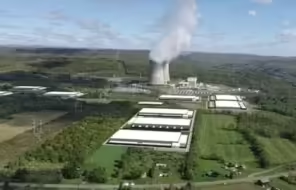US data needs aren’t slowing down, and with more data demand comes a corresponding increase in energy consumption.
Every energy think tank and analysis group out there has projections for just how much energy data centers will need in the coming years, and the numbers are high across the board. Current energy demand from data centers rings in at ~35 GW.
- BloombergNEF recently published its estimate that demand could more than double to 78 GW by 2035.
- Deloitte’s projections are more aggressive; the bank’s analysts envision a 5x increase to 176 GW in the same time frame.
So the question remains: Where is that power coming from?
According to a recent Deloitte report, improvements and development of new nuclear capacity could realistically provide 10% of the energy needed by the growing and power-hungry data sector. That proportion includes capacity gains driven by reactor reopenings and improvements, as well as new SMR deployments.
Hyperscalers unite: The top four companies guzzling the most data—AWS, Google, Meta, and Microsoft—are all considering nuclear power to meet their needs. With such an increase in scale, anything and everything is on the table.
- AWS bought a data center campus that’s interconnected with Talen Energy’s nuclear plant in Pennsylvania (but it’s having trouble getting approval from FERC, the grid regulator). AWS also made a strategic investment in SMR company X-energy and backed its project with Energy Northwest to build four Xe-100 reactors.
- Google has an agreement with Kairos Power to procure 500 MW of power from a handful of reactors in the US.
- Microsoft is working with Constellation to restart the Three Mile Island plant under a new name.
- Meta hasn’t made any public partnerships in nuclear, but it did announce an interest in nuclear and is seeking proposals.
Costs and scaling: Nuclear projects are notoriously expensive and overrun their timelines. Deloitte found that new nuclear builds cost $6,417–$12,681 per kilowatt in 2024 compared with $1,290 per kilowatt for natural gas facilities. That’s a tough pill to swallow.
Part of that is the first-of-a-kind problem. Building the first version of any reactor is more expensive because there’s a lack of experience and the need for new supply chains. Costs will drop as the nuclear industry scales production, leverages modular designs, and develops a skilled workforce—but so far, that hasn’t come to pass.
The workforce question: Building that much new nuclear capacity takes a workforce to match, and the nuclear sector faces a particularly steep uphill battle. Deloitte found that the nuclear workforce will need to increase by 275% by 2050 to meet its goals. At the same time, the analysis found that the nuclear workforce is older and closer to retirement than other energy sectors, with only 23% of workers under the age of 30 compared with 29% for the energy industry at large.
“This age distribution indicates that a large number of retirements are expected within the next decade, creating a considerable demand for younger, skilled workers,” the analysts wrote. “Both industry and government may need to come together to address this issue.”
Lead Reporter of Ignition





